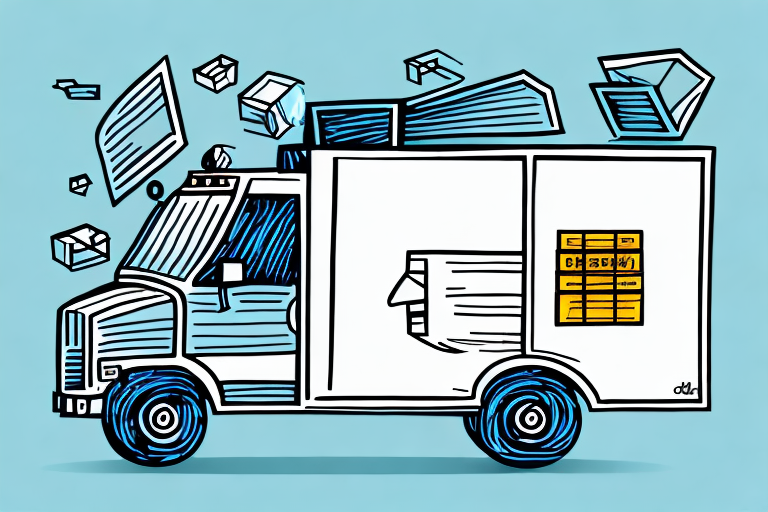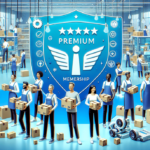How to Start a Wholesale Ecommerce Business
Starting a wholesale ecommerce business can be a lucrative opportunity for entrepreneurs passionate about providing high-quality products to customers at wholesale prices. With the rise of ecommerce, wholesale businesses are becoming increasingly popular. However, before diving in, it’s essential to understand what it takes to start and run a successful wholesale ecommerce business. In this comprehensive guide, we’ll provide you with all the steps needed to start a thriving wholesale ecommerce business.
Why Wholesale Ecommerce is a Lucrative Business Idea
Wholesale ecommerce is a prime business idea because it allows entrepreneurs to bypass the middleman and connect directly with customers. This business model is particularly attractive because it enables businesses to save on overhead costs and offer products at lower prices than traditional retail businesses. Additionally, online sales are projected to continue growing, providing prime opportunities for ecommerce businesses to thrive.
Another advantage of wholesale ecommerce is the ability to reach a wider audience. With an online store, businesses can sell their products to customers worldwide, without the limitations of a physical storefront. This opens up new markets and revenue streams, allowing businesses to expand their reach and increase their profits.
Furthermore, wholesale ecommerce allows for greater flexibility and scalability. Businesses can easily adjust their inventory and product offerings based on customer demand, without the constraints of physical shelf space. This adaptability helps businesses quickly respond to changing market trends and customer preferences, staying ahead of the competition and maintaining their edge in the market.
Planning Your Wholesale Ecommerce Business
Conducting Market Research
Conducting market research is crucial to identify customers and understand their needs. For a wholesale ecommerce business, knowing what products your customers are looking for and at what price point is essential. Thorough market research can help identify gaps in the market, potential target audiences, and competitors to emulate and learn from.
Effective ways to conduct market research include:
- Surveys: Use online surveys, focus groups, or in-person interviews to gather data on customer needs and preferences.
- Industry Analysis: Study sales figures, consumer behavior, and emerging technologies to stay up-to-date on industry trends.
- Competitive Analysis: Analyze competitors to understand their strengths and weaknesses, and identify opportunities for differentiation.
Choosing the Right Products to Sell
Choosing the right products is critical for the success of your wholesale ecommerce business. Consider your target customers’ needs and preferences, ensuring that the products are in demand, high-quality, and priced appropriately for your business model. Additionally, factor in shipping costs, storage space, and delivery times when selecting products.
Other considerations include:
- Market Competition: Choose products with a reasonable level of competition—enough to indicate demand but not so much that it’s difficult to stand out.
- Trends and Consumer Preferences: Stay updated with the latest trends by attending trade shows, following industry publications, and engaging with customers on social media.
Creating a Business Plan
A solid business plan is critical for starting a successful wholesale ecommerce business. Your business plan should outline your goals and objectives, list your products and services, outline a marketing and sales plan, set financial projections, and identify potential challenges or risks.
Key components of a business plan include:
- Executive Summary: Provide an overview of your business and its goals.
- Market Analysis: Present findings from your market research.
- Marketing Strategy: Outline how you will attract and retain customers.
- Operations Plan: Detail your inventory management, fulfillment, and other operational processes.
- Financial Projections: Include projected income statements, cash flow statements, and balance sheets.
Understanding your target audience through market research and customer data is essential for tailoring your products, marketing, and sales strategies to meet their needs and preferences.
Building Your Online Presence
Building a Professional Website
The quality and functionality of your ecommerce website are critical to your business's success. Your website should be user-friendly, clearly outline your products and services, and offer a seamless purchasing experience for customers. Key features to include are:
- Detailed product descriptions and high-quality photos
- Customer reviews and testimonials
- Clear shipping and return policies
- Easy-to-find contact information
Additionally, incorporating search engine optimization (SEO) into your website design helps improve your website’s ranking in search engine results, making it easier for potential customers to find you. Essential SEO tactics include keyword research, optimizing content and site structure, and building quality backlinks from reputable websites.
Understanding the Importance of SEO
SEO is crucial for attracting organic traffic to your ecommerce store. Key SEO strategies include:
- Keyword Research: Identify relevant keywords that potential customers are searching for and incorporate them into your content.
- On-Page Optimization: Optimize your website’s structure, meta descriptions, title tags, and headers.
- Quality Content: Create valuable content, such as blog posts and guides, that address your customers’ needs and interests.
- Backlink Building: Acquire backlinks from authoritative websites to boost your site’s credibility and ranking.
Optimizing your product descriptions by including relevant keywords and using alt tags for images can also improve your website’s visibility in search results.
Designing an Effective Ecommerce Sales Funnel
An ecommerce sales funnel refers to the journey your customers take from their initial interaction with your website to the final purchase. A well-designed sales funnel can convert interested shoppers into paying customers. Key components of an effective sales funnel include:
- Awareness: Attract potential customers through SEO, content marketing, and social media.
- Interest: Engage visitors with compelling content, product descriptions, and testimonials.
- Consideration: Provide detailed information and comparisons to help customers make informed decisions.
- Intent: Use opt-in forms and email marketing to capture leads.
- Conversion: Simplify the checkout process and offer incentives like discounts or free shipping to encourage purchases.
Optimizing your website for conversions, such as improving loading speed, ensuring mobile-friendliness, and streamlining the checkout process, can reduce cart abandonment and increase your conversion rates.
Marketing Strategies for Your Wholesale Ecommerce Business
Promoting Through Social Media Marketing
Social media marketing is a powerful tool for promoting your wholesale ecommerce business, building brand awareness, and engaging with customers. Leveraging platforms like Facebook, Instagram, Twitter, and LinkedIn can drive traffic to your website and increase sales. Effective social media tactics include:
- Create engaging content that resonates with your target audience.
- Utilize relevant hashtags to increase visibility.
- Run targeted social media advertisements to reach specific demographics.
- Engage with followers by responding to comments and messages promptly.
Social media allows for precise audience targeting based on demographics and interests, leading to higher engagement rates and more conversions. Monitoring and analyzing your social media performance through metrics such as reach, engagement, and conversions can help refine your strategy and optimize results.
Creating an Effective Email Marketing Strategy
Email marketing remains a cost-effective way to stay in touch with customers, promote new products, and increase sales. To create an effective email marketing strategy for your wholesale business:
- Email Automation: Use automation tools to send timely and relevant emails based on customer behavior.
- List Segmentation: Segment your customer list to send personalized messages tailored to different groups.
- Personalization: Personalize email content to address each customer’s unique needs and interests.
- Mobile-Friendly Design: Ensure that your emails are optimized for mobile devices with responsive designs and clear, concise language.
Regularly analyze and track your email marketing metrics, such as open rates, click-through rates, and conversion rates, to gain insights into what’s working and what needs improvement. Use this data to refine and enhance your email marketing strategy over time.
Operations and Fulfillment
Managing Inventory and Fulfillment
Effective inventory management and order fulfillment are critical for running a successful wholesale ecommerce business. Key considerations include:
- Inventory Control: Ensure you have enough inventory to meet customer demand without overselling or running out of stock.
- Efficient Fulfillment Processes: Implement reliable shipping and delivery processes to keep customers satisfied.
- Inventory Tracking: Use inventory management software to track stock levels, sales, and reorder points.
- Supplier Relationships: Maintain strong relationships with suppliers to ensure timely restocking and address any supply chain issues promptly.
Setting Competitive Prices
Pricing is a vital factor in attracting customers and ensuring profitability. To set competitive prices:
- Market Analysis: Research competitor pricing to understand the market rate for your products.
- Cost Calculation: Factor in all costs, including production, shipping, storage, and overheads, to determine a profitable price point.
- Dynamic Pricing: Periodically review and adjust your prices based on customer feedback, market trends, and competitor actions.
- Value-Based Pricing: Consider the perceived value of your products to set prices that reflect quality and brand positioning.
Customer Service & Growth
Providing Excellent Customer Service
Excellent customer service is essential for building brand loyalty and growing your wholesale ecommerce business. Ensure that customers have a positive experience at every touchpoint, from browsing your website to receiving their orders. Strategies include:
- Responsive Support: Offer multiple channels for customer support, such as live chat, email, and phone, and respond promptly to inquiries.
- Easy Returns and Exchanges: Implement clear and hassle-free return and exchange policies to enhance customer satisfaction.
- Timely Fulfillment: Ensure orders are processed and shipped promptly to meet customer expectations.
- Follow-Up: Send follow-up emails to gather feedback and encourage repeat business.
Scaling and Growing Your Business
As your wholesale ecommerce business grows, it’s important to scale and expand to meet increasing customer demand. Consider the following steps for sustainable growth:
- Expand Product Offerings: Introduce new products or services to diversify your offerings and attract new customers.
- Partner with Other Businesses: Form strategic partnerships to expand your reach and leverage complementary strengths.
- Geographic Expansion: Enter new markets by targeting customers in different regions or countries.
- Automate Processes: Use automation tools for marketing, inventory management, and customer service to improve efficiency and scalability.
Continuously track key performance metrics and adjust your business plan as needed to ensure continued growth and success.
Legal Considerations
Starting a wholesale ecommerce business involves several legal considerations to ensure compliance and protect your business. Key legal steps include:
- Business Registration: Register your business name and obtain any necessary licenses or permits required in your jurisdiction.
- Legal Structure: Choose an appropriate legal structure (e.g., sole proprietorship, LLC, corporation) that suits your business needs.
- Compliance: Ensure your ecommerce website complies with applicable laws and regulations, including those related to online privacy, data security, and consumer protection.
- Terms and Policies: Develop clear terms of service, privacy policies, and return policies to inform customers about their rights and your business practices.
- Intellectual Property: Protect your brand and products by securing trademarks, copyrights, and patents as necessary.
Consult with legal professionals to ensure that all legal aspects of your business are addressed properly.
Scaling and Growing Your Wholesale Ecommerce Business Over Time
As your wholesale ecommerce business grows, it’s important to continue scaling and expanding to meet customer demand. You may want to consider adding new products or services, partnering with other businesses, or expanding your customer base. It’s also important to continue tracking your metrics and adjusting your business plan as needed to ensure continued growth and success.
With a solid plan in place, dedication, and hard work, you can build a thriving business that provides high-quality products to customers at wholesale prices.





















